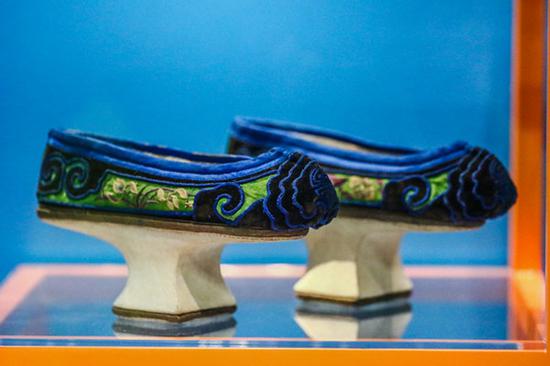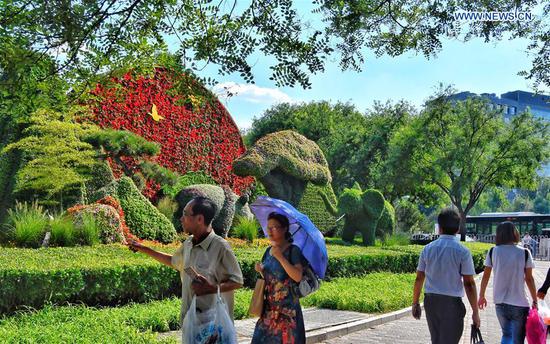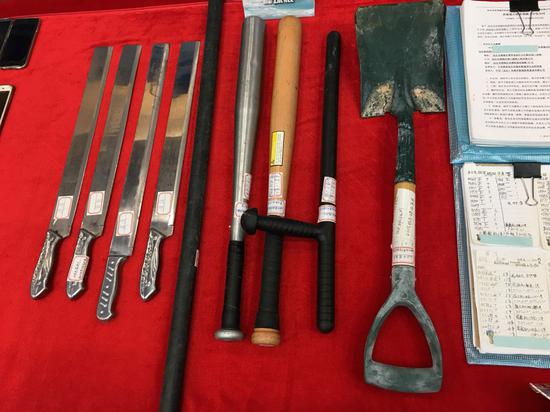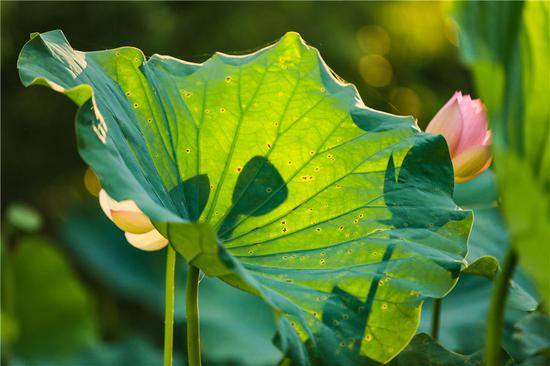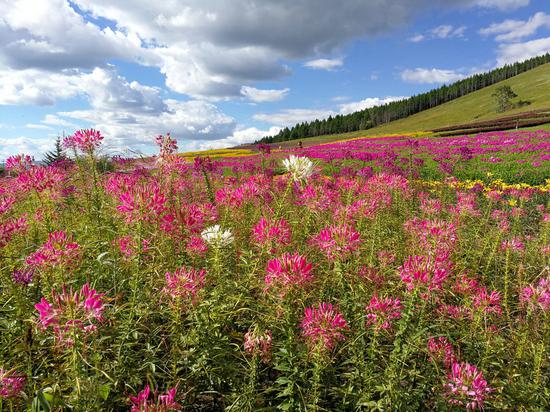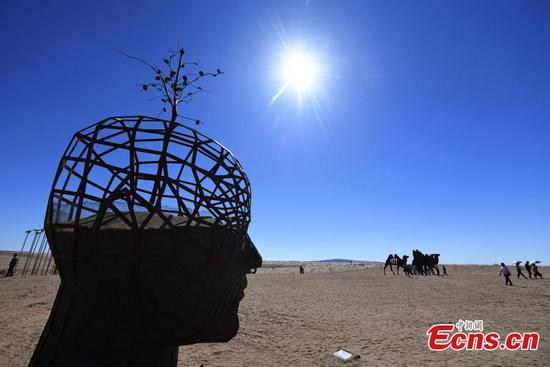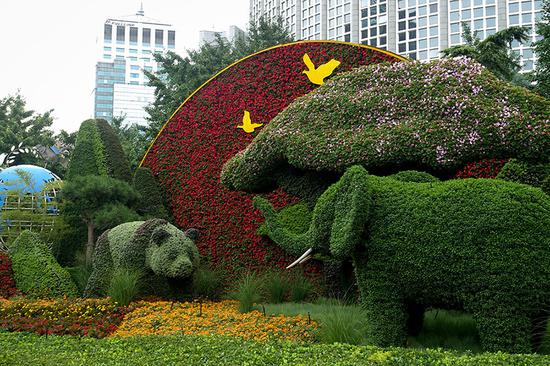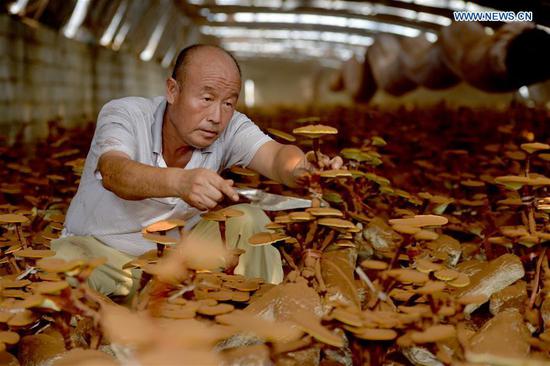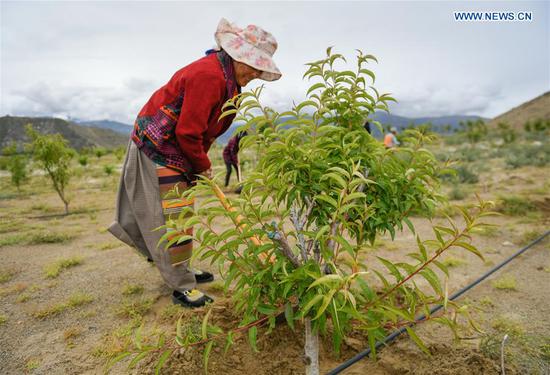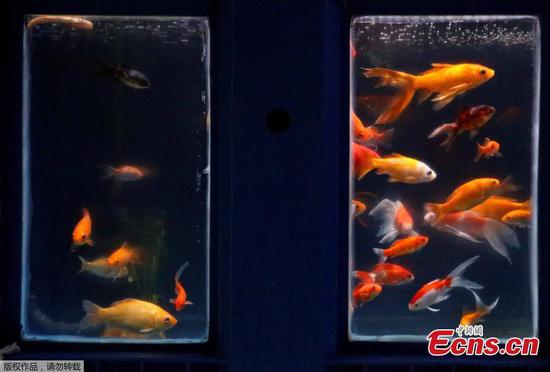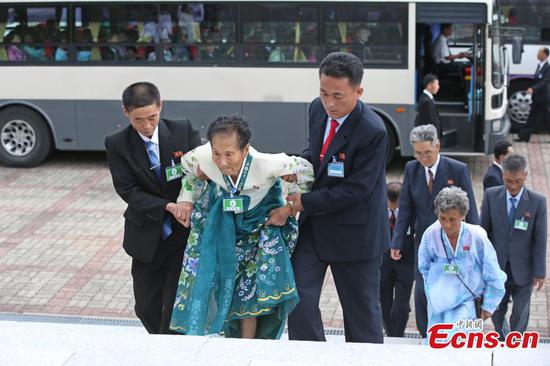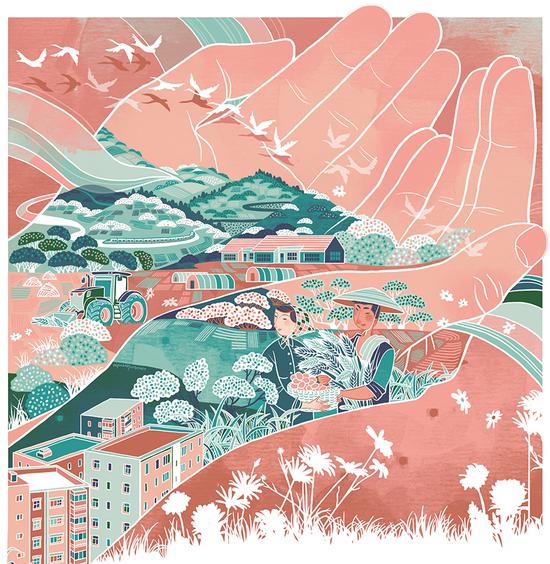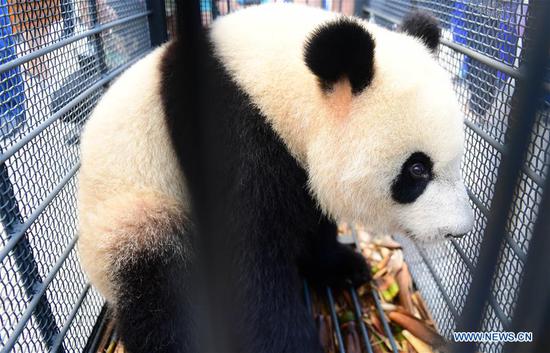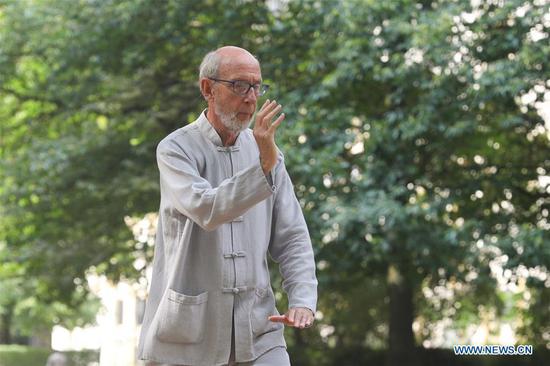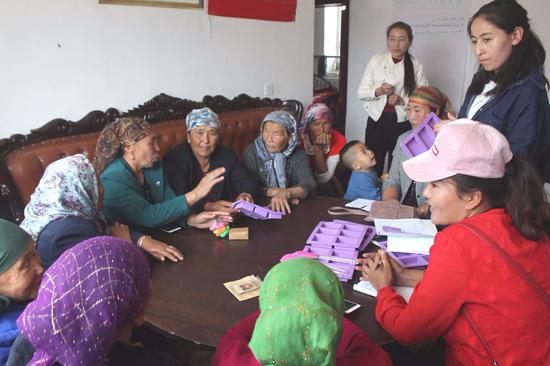
Members of the workshop attend a group meeting. (China Daily)
About 30 women in Erjanhan's village know how to make black soap, which today provides them with an opportunity to make money while protecting the environment. It also serves as an eco-tourism experience, allowing visitors to better understand the traditional everyday culture of the Kazakh ethnic group.
Erjanhan said it is easy to find the raw materials around her village. Also, because it uses natural plant extracts that are good for people's health, black soap has therapeutic as well as cleansing properties, she added.
Kazakhs use different plants to make a variety of soaps, which have different effects. For example, soap made using ramie - a type of nettle - is used to treat acne and itching, especially for bathing infants and children, while soap using fennel can prevent dandruff and alleviate skin diseases.
"When a child has a fever, we smear their whole body with black soap," Erjanhan said. "It's also effective for rashes and itchy skin."
Each bar of soap made by the women can be sold for 45 yuan ($6.50), 10 percent of which goes toward the village's ecological fund. The women have put their products on a local e-commerce platform to improve sales.
"Black soap was passed down from the ancestors," Erjanhan said. "It takes only two days to make enough soap to supply more than 10 families for a year.
"I hope the younger generation don't forget this precious tradition and don't let the technique of making black soap disappear."









